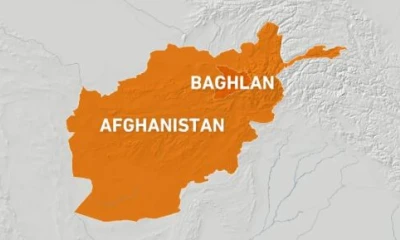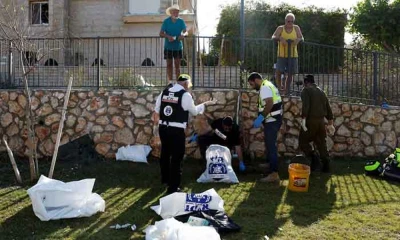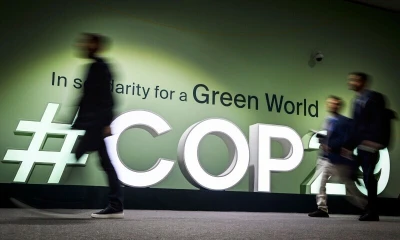World
State of emergency declared in Canada's British Columbia following Vancouver storm
A state of emergency has been declared in the Canadian western province of British Columbia after a major storm cut road and rail links in the region.
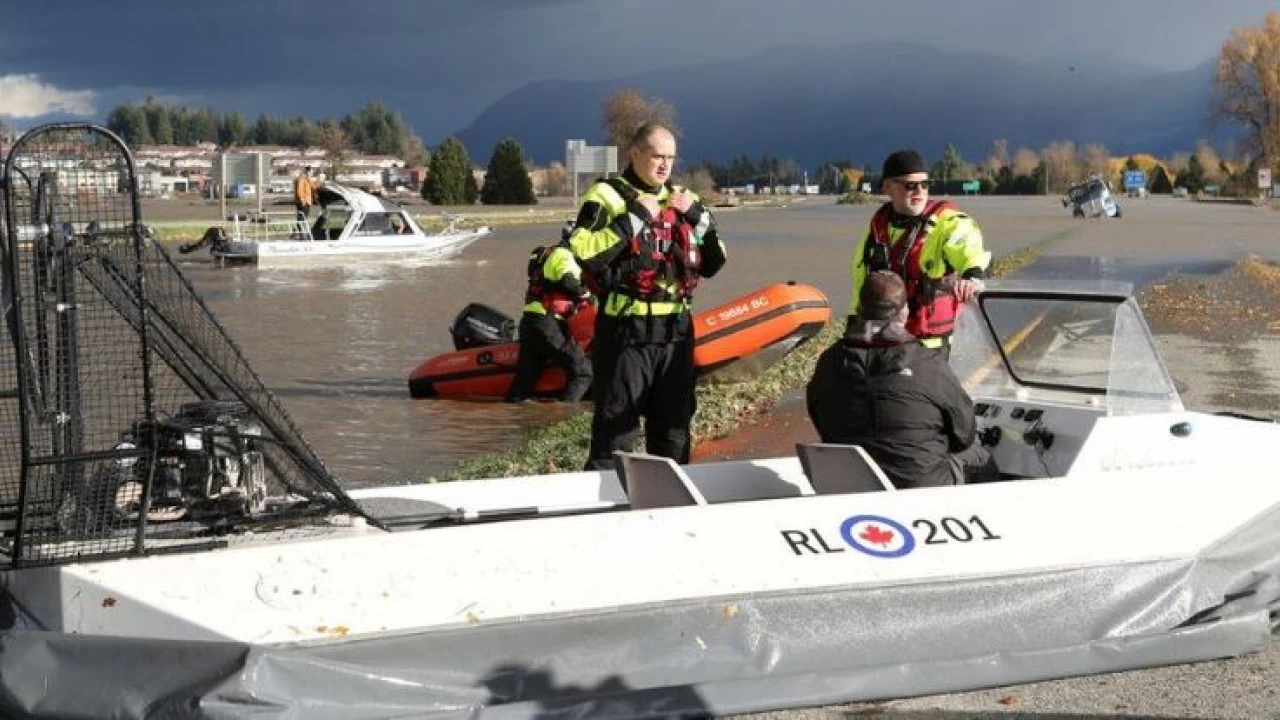
The Canadian Armed Forces are being deployed to help thousands of stranded residents who have been trapped since the storm hit overnight on Sunday.
Prime Minister Justin Trudeau pledged assistance during a visit to Washington DC and said troops would help rebuild.
One woman was killed in a landslide, and two people are missing. Thousands remain evacuated after an "atmospheric river" - a long strip of moisture in the air that transports water from tropical areas towards the poles - dumped the region's monthly rainfall average in 24 hours.
Officials in the region have attributed the natural disaster to the effects of climate change.
The impact of climate change on the frequency of storms is still unclear, but we know that increased sea surface temperatures warm the air above and make more energy available to drive hurricanes, cyclones and typhoons. As a result, they are likely to be more intense with more extreme rainfall.
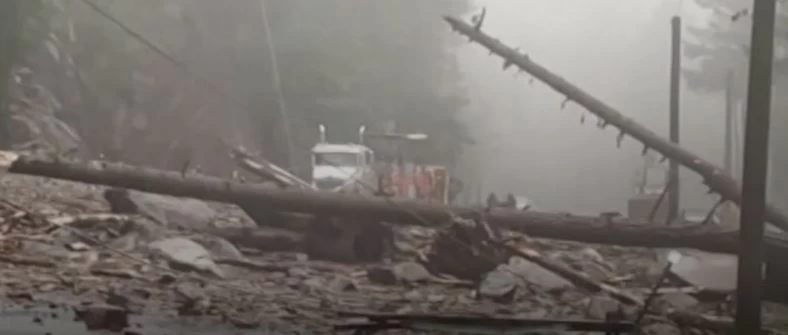
The world has already warmed by about 1.2C since the industrial era began and temperatures will keep rising unless governments around the world make steep cuts to emissions.
How is this linked to climate change?
In a news conference on Wednesday, British Columbia Premier John Horgan said the emergency order took effect at 12:00 local time (20:00GMT).
He said that travel restrictions will keep people off flooded roads, and ensure that essential goods will "reach the communities that need them".
"There's not a person that hasn't been effected or will not be effected by the events of this past weekend," he said, adding: "These events are increasing in frequency due to human caused climate change."
Mr Horgan added human-caused climate change is to blame for the recent disaster, and that British Columbia must "bring the seven billion other souls that live on this planet to understand that we need to act now… to protect us from these types of events that will happen in the future".
The extreme weather in Canada comes days after world leaders met for the COP26 climate conference in Glasgow.
The same region, British Columbia, suffered a record high heat wave in the summer that killed more than 500 people as well as wildfires, including one that destroyed the village of Lytton.
What is the current situation in British Columbia?
The rains and winds had largely finished by Tuesday afternoon, but several communities remain stranded.
Helicopters on Wednesday dropped food supplies to stranded mountain communities after slides destroyed road and floods submerged major highways.
The town of Tulameen has about 400 people trapped there, according to Reuters news agency.
Some communities at higher elevations have seen temperatures drop below freezing. Farmers and ranchers are lower elevations have struggled with widespread flooding.
Approximately 1,500 travellers became stranded in the town of Hope after roads closed, Grace Baptist Church Pastor Jeff Kuhn told BBC News in an email on Wednesday.
The local school is currently housing about 700 people, and the church is hosting about 250 people and also feeding about 400 people per day.
Around town, "many [are] sleeping in their cars at night", he added.
He said that power was restored on Tuesday, which lifted spirits, but food supplies are running low despite an emergency air drop.
"The community emergency services have organised some airlifted supplies that have allowed us to keep feeding people," he said. "But the situation with food will become worse if the roads do not open soon."
Premier Horgan has called on residents to stay at home, and to not hoard items. "What you need your neighbours need as well," he said.
Residents of some neighbourhoods in the city of Abbotsford were told on Tuesday to leave immediately as rising water levels posed "a significant risk to life".
In a press conference on Wednesday, Mayor Henry Braun said water levels in the nearby Fraser River were dropping but warned: "We're not out of this yet.
"If we have another weather event like we just went through, we're in deep doo-doo," he said.
Rescue operations are still under way in the area, and aerial assessments of the damage are being conducted.
The Royal Canadian Mounted Police (RCMP) confirmed on Tuesday that one woman was killed in a highway landslide near Lillooet, about 250km from Vancouver.
Motorist Kathie Rennie told CBC News she saw the landslide come down on traffic that was already at a standstill.
"I just turned around, and I'm just watching the whole side of the mountain coming down and taking out these cars... everything just being swept away. Just complete panic," she said.
SOURCE: BBC NEWS
-
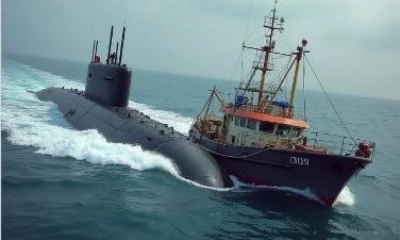
 World 1 day ago
World 1 day ago'Negligent act': Indian Navy submarine collides with fishing vessel
-

 Technology 1 day ago
Technology 1 day agoCrypto giant Bitcoin touches record high of $100,000
-

 Regional 2 days ago
Regional 2 days agoPunjab situation better than others, no compromise on merit: CM Maryam
-

 Pakistan 18 hours ago
Pakistan 18 hours agoGovt to suspend internet services amid PTI protest
-

 Business 19 hours ago
Business 19 hours agoGold glitters again in Pakistan after global price hike
-
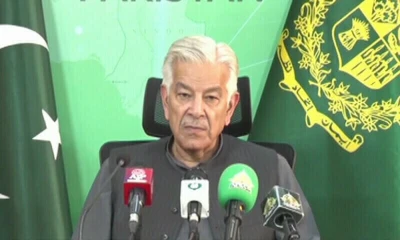
 Pakistan 2 days ago
Pakistan 2 days agoBushra Bibi's allegations against Saudi Arabia are shameful: Khawaja Asif
-
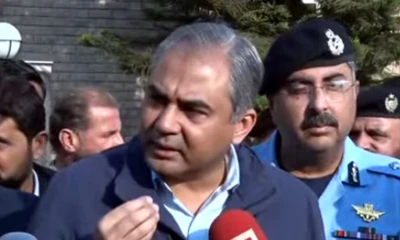
 Pakistan 1 day ago
Pakistan 1 day agoNobody to be allowed to stage sit-in or gathering in capital: Naqvi
-

 Business 1 day ago
Business 1 day agoGold prices rise sharply in Pakistan




